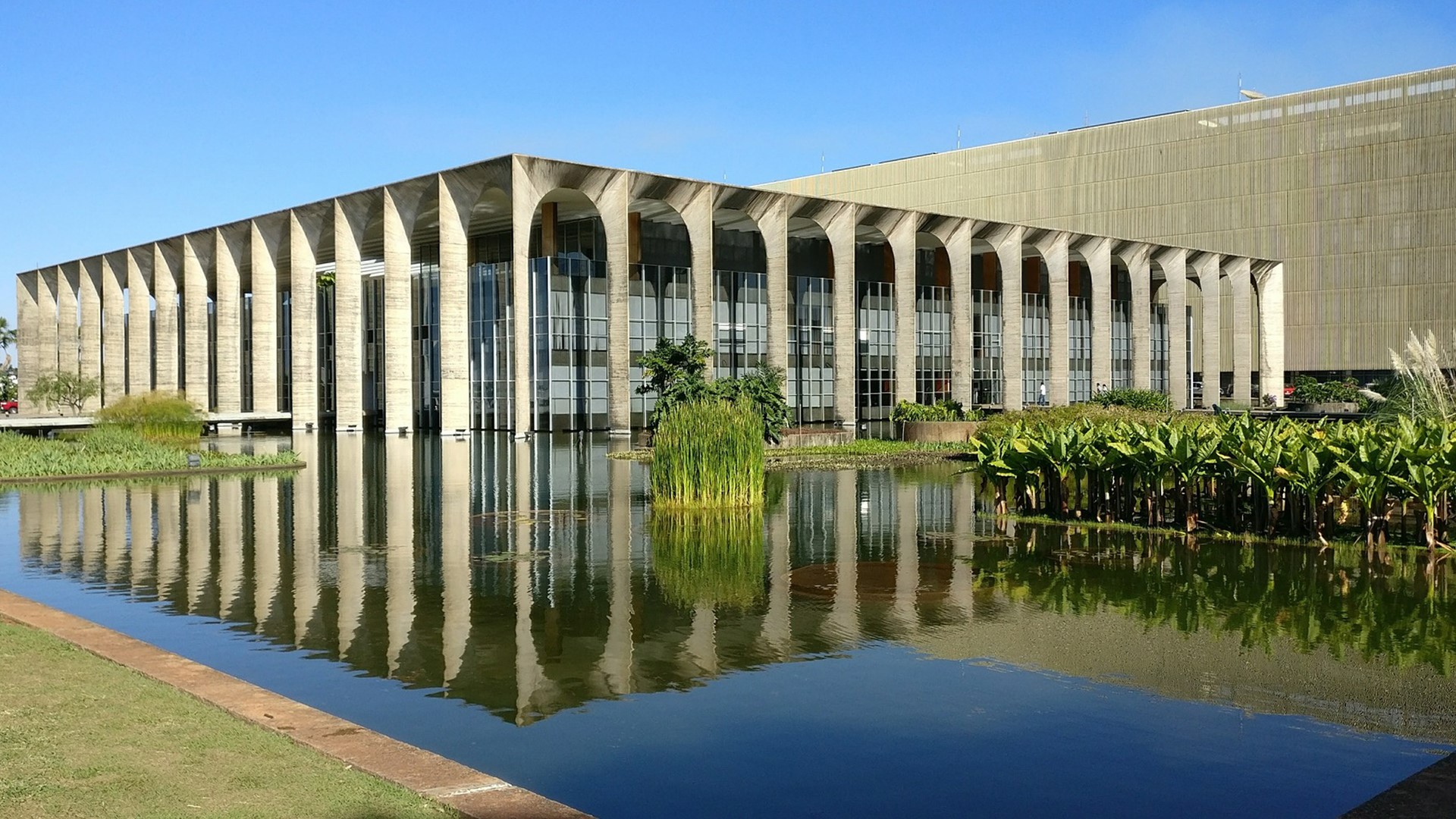
Official name: FEDERATIVE REPUBLIC OF BRAZIL
Short name: Brazil
Date of Membership: 14 May 1976
Capital: Brasilia
Geography
Location: Eastern South America, bordering the Atlantic Ocean
Area: 8.514.877 km2
Land boundaries: 16,885 km
Border countries: Argentina 1,261 km, Bolivia 3,423 km, Colombia 1,644 km, French Guiana 730 km, Guyana 1,606 km, Paraguay 1,365 km, Peru 2,995 km, Suriname 593 km, Uruguay 1,068 km, Venezuela 2,200 km.
Coastline: 7,491 km
Natural resources: Bauxite, gold, iron ore, manganese, nickel, phosphates, platinum, tin, uranium, petroleum, hydropower, timber.
Environment-international agreements. Party to: Antarctic-Environmental Protocol, Antarctic-Marine Living Resources, Antarctic Seals, Antarctic Treaty, Biodiversity, Climate Change, Climate Change-Kyoto Protocol, Desertification, Endangered Species, Environmental Modification, Hazardous Wastes, Law of the Sea, Marine Dumping, Ozone Layer Protection, Ship Pollution, Tropical Timber 83, Tropical Timber 94, Wetlands, Whaling signed, but not ratified: none of the selected agreements.
Note: Largest country in South America; shares common boundaries with every South American country except Chile and Ecuador.
Economic indicators
| Total at current prices | 1448566 | Millions USD | 2020 |
| GDP Per capita at constant prices | 6815 | USD | 2020 |
| Growth rate per capita at constant prices | -0.39 | % | 2017 |
| Imports of goods and services (% of GDP at current prices) | -11.6 | % | 2017 |
| Exports of goods and services (% of GDP at current prices) | 12.6 | % | 2017 |
Source: Brazil: National Economic Profile. CEPALSTAT. Databases and Statistical Publications. ECLAC. Inquiry: February 14, 2022
Socio-demographic indicators
| Total population | 212559.4 | (000) | 2020 |
| Life expectancy | 77 | Years | 2020-2025 |
| Women | 80 | Years | 2020-2025 |
| Men | 73 | Years | 2020-2025 |
| Public health expenditure as a percentage of GDP | 9.5 | % | 2018 |
| Literacy rate for persons between the ages of 15 to 24 | 98.2 | % | 2018 |
| Net rate of enrolment in primary education | 99.4 | % | 2019 |
| Net rate of enrolment in secondary education | 85.0 | % | 2019 |
| Public expenditure on education as a percentage of GDP | 6.1 | % | 2018 |
| Gini Coefficient | 0.52 | % | 2020 |
| Unemployment | 13.5 | % | 2020 |
| Migration | 0.0 | % | 2020-2025 |
Source: Brazil: National Socio-Demographic Profile. CEPALSTAT. Data Bases and Statistical Publications. . ECLAC. Inquiry: February 14, 2022
Languages: Portuguese (official)
Government
Administrative divisions: 26 states (estados, singular – estado) and 1 federal district (distrito federal): Acre, Alagoas, Amapa, Amazonas, Bahia, Ceara, Distrito Federal, Espirito Santo, Goias, Maranhao, Mato Grosso, Mato Grosso do Sul, Minas Gerais, Para, Paraiba, Parana, Pernambuco, Piaui, Rio de Janeiro, Rio Grande do Norte, Rio Grande do Sul, Rondonia, Roraima, Santa Catarina, Sao Paulo, Sergipe, Tocantins.
Independence: 7 September 1822 (from Portugal)
Constitution: 5 October 1988
Suffrage: Voluntary between 16 and 18 years of age and over 70; compulsory over 18 and under 70 years of age.
Note: Military conscripts do not vote.
Executive branch: Chief of state: President Jair Bolsonaro (since 1 January 2019)
Legislative branch: Bicameral National Congress or Congresso Nacional consists of the Federal Senate or Senado Federal (81 seats; three members from each state and federal district elected according to the principle of majority to serve eight-year terms; one-third elected after a four-year period, two-thirds elected after the next four-year period) and the Chamber of Deputies or Camara dos Diputados (513 seats; members are elected by proportional representation to serve four-year terms).
Judicial branch: Supreme Federal Tribunal (11 ministers are appointed for life by the president and confirmed by the Senate); Higher Tribunal of Justice; Regional Federal Tribunals (judges are appointed for life).
Note: Though appointed “for life,” judges, like all federal employees, have a mandatory retirement age of 70.
Internet country code: .br
Web Official Portal: http://www.brasil.gov.br
